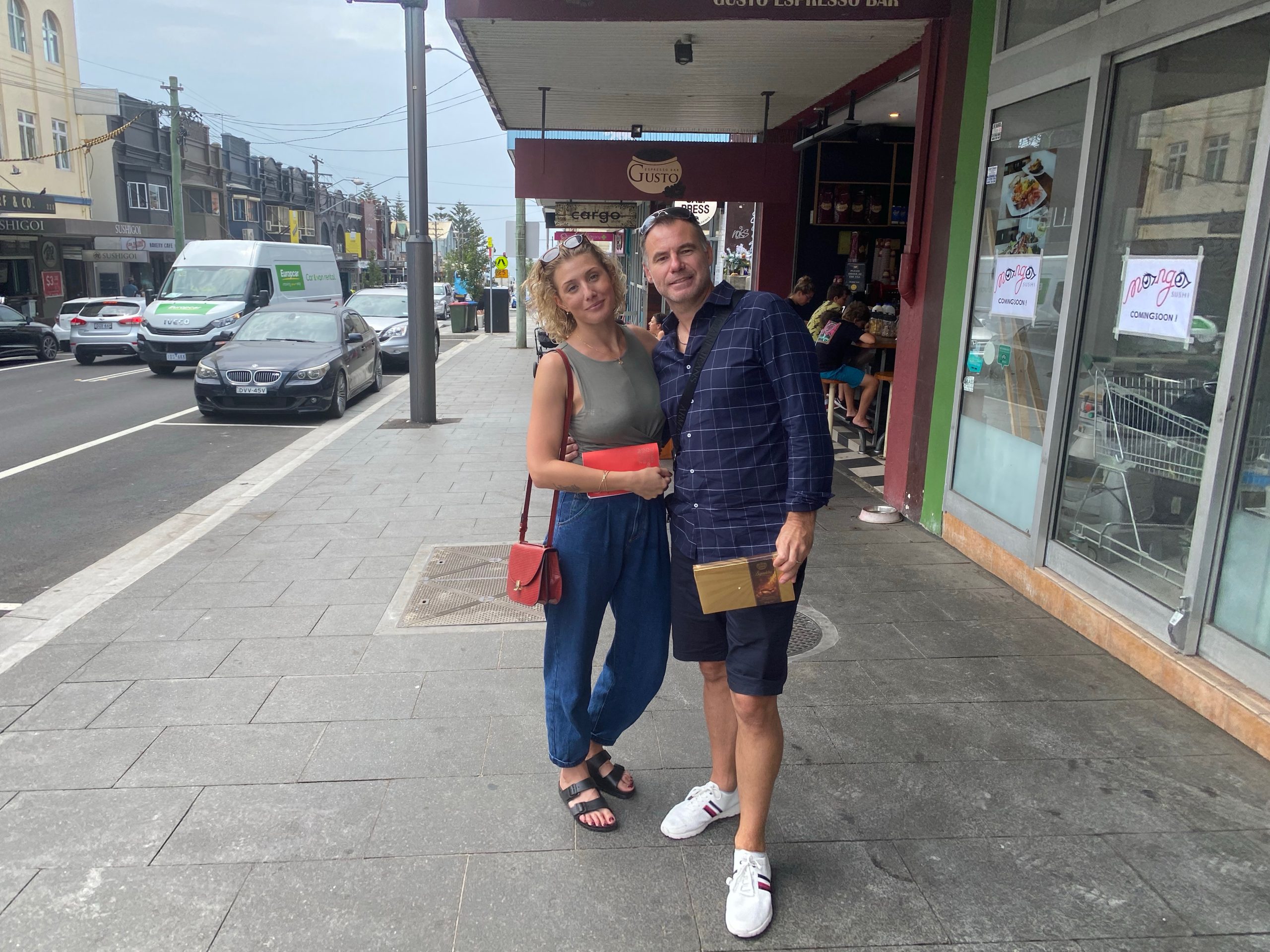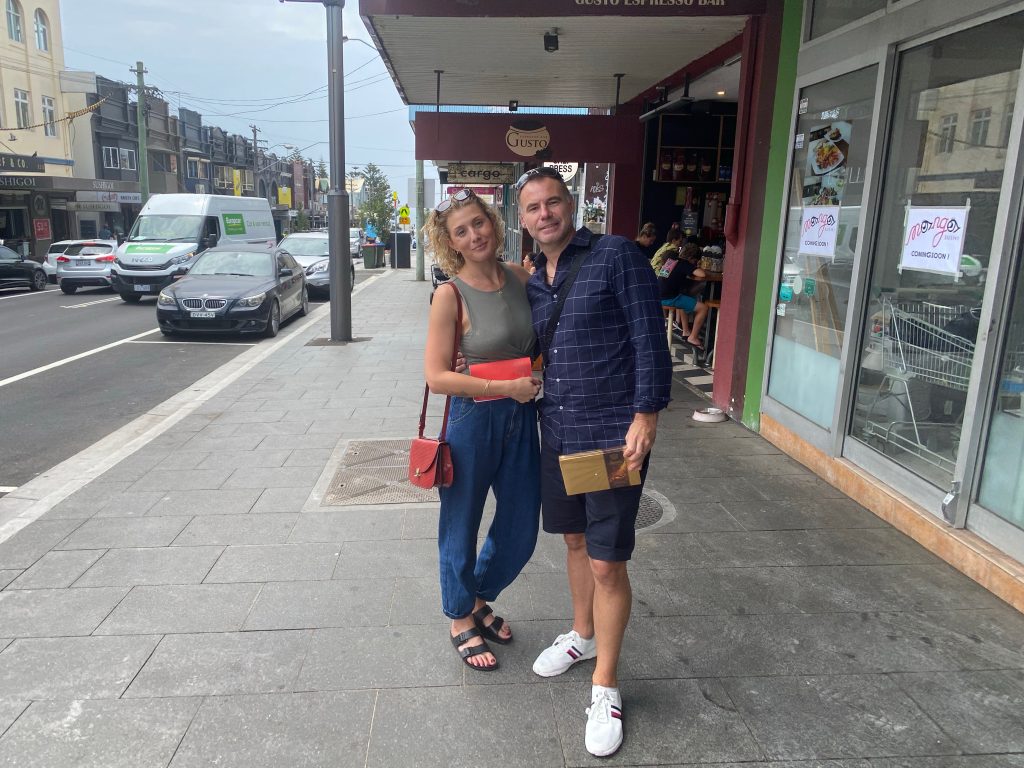
January 17, 2020 – The ‘TCN Down Under’ series comes to a close as Daniela Rogulj interviews Matilda’s soccer coach Ante Milicic in Sydney.
It was a sunny Wednesday afternoon in the coastal suburb of Coogee. Ante Milicic greeted me at Gusto coffee shop with a hug and a ‘Di Si!’ which made me feel right at home. We spoke over piccolo lattes and giggled to tears. I couldn’t imagine a better way to end this TCN interview series.
Ante was cheerful as we began, with a smile that stretched from ear to ear. He was eager to share his Croatian heritage.
“I was born in Sydney. My father is from Hvar, from Brusje, which they all tell me was a thriving metropolis in the ’50s and ‘60s, haha. They’ve also said that many ‘pametni ljudi” (smart people) come from there. My mother, who passed away in 1991, was from a place called Sisak, which is not far from Zagreb. I used to visit there a lot more when I was younger. Even though I was born in Sydney, my parents always had this fascination with Croatia, so I had a strong Croatian upbringing here. And particularly in Sydney where, in the ‘70s and ‘80s, there were very active Croatian communities. We had the Croatian church, club, and I played in the Croatian soccer team. I used to spend many of my summer holidays in Hvar, Jelsa, and this was still in the days of the former state. I always had a love for Croatia. My father is the oldest of 10, so I’ve got a lot of cousins there and uncles and aunties and I’m the godfather to a few of the kids there. On my mum’s side, there are three sisters as well.
Through my footballing career, I always wanted to play in Croatia and I was fortunate enough to play for Rijeka for two years. I absolutely loved it.”
Ante was thus exposed to a lot of Croatian culture growing up in Australia.
“You know, school for me would be Monday to Friday, but the excitement was Tuesday and Thursday night training with my Croatian soccer team, Sunday watching the soccer, going to Croatian weddings… I guess it was pretty standard with what everyone else was doing, but that’s all we knew and that’s what we loved. It was a very exciting time because it was also a very close-knit community, and it was strong. I loved my upbringing.”
Ante started his soccer career at Sydney United, formerly known as Sydney Croatia, in the early 1990s.
“There was always a lot of talk about the Homeland War then, a lot of fundraising events, protests. I remember going to one in Canberra. We’d get 20-30,000 people to come from around Australia. I remember being young and not understanding it fully, but we’d all be there at our Sydney Croatia training in our tracksuits holding Croatian flags and it was just normal. They were great days.
Back then, the club was known as Sydney Croatia. Just as we would refer to the other clubs, like the Melbourne Croatia and Canberra Croatia. It was great. As a young kid, I remember that whenever I would go to Melbourne, Perth, or Adelaide, I’d always go to their Croatian clubs. If we would play a team from Victoria, for example, I’d always swap my tracksuit with a Croatian player on their team. It was a strong bond back in those days.”
The majority of Ante’s soccer career was played in Australia. He spoke a bit about his experience.
“Football in Australia isn’t what it is in Europe, but I enjoyed playing here. This is where I grew up. I had the opportunity to play two years in Croatia, two years in Holland, and two years in Malaysia, so I got to travel through my football, which was exciting.
My highlight from my Australian career is probably playing for the Australia national team. You always had that goal to play for your national team and I was fortunate enough to do that. And again, we can go back to the Croatian heritage… We had Popovic playing for the national team, Jason Colina, and Ljubo Milicevic, who now makes the best coffees down here in Bondi. A lot of us guys who played junior football then went on to the national team – and it’s a different feeling when you’re in camp, when you’re traveling, in hotels, at airports, it was really good.”
Ante went on to coaching after he retired as a player. The first club he coached was Sydney Croatia.
“That’s why the Croatian community is so good because when my career as a player came to an end, I was 33 or 34, because of my history with the club, they gave me an opportunity there. And it works both ways – not only does it give me a chance as a coach to start my career, but they know that they’re getting a former player that has a stronger feeling for the club, who will give more, will protect it more, and it was a great year that I spent coach. It really gave me a good platform and I’ve been fortunate from there that my coaching career has gone in the right way.”
From there, he moved into being the assistant coach of the Australia men’s national team.
“I was fortunate – I went to two World Cups. I went to Brazil in 2014. We had played Croatia in a friendly game and I ended up getting a Brozovic shirt for one of my cousins who works in Hvar. In 2018, I went to Russia for the World Cup as well. To go to two World Cups was truly amazing. As you know, Australia didn’t get out of their group in Russia, so I was in Hvar for the remainder of the World Cup. Every night, as in all around Croatia, it was buzzing. What was really good was that when Croatia got to the semis, the Australian federation rang me and said, ‘listen, because we are a competing country in the World Cup we’ve got two tickets for you if you want to go to the final in Russia.’ This was before Croatia played England, but I said I’d take them. I couldn’t get any flights out of Zagreb, so I booked two tickets out of Hungary to go. I am in Hvar, and as you know, you have to first get to Split, then Zagreb, then drive to Hungary. But when Croatia went down against England, and I had already paid for the hotel and flights to go to the final, I thought I just couldn’t go and be bothered to watch an England v. France final. Lucky Croatia ended up winning, and it turned out to be an unbelievable trip. But, knowing me, and no disrespect, but if Croatia didn’t win that semi-final, I’d rather have stayed on Hvar haha.
I was disappointed with the final result, but I can say that I was there.”
Not long after his run in Russia, Ante was appointed as the coach of the Australia women’s soccer team in February 2019. He would lead the Matilda’s to their World Cup in France that summer.
“Yes, well, that was a bit of a long story, but the Australian Federation made a change of coach, and I was off doing my own thingl, and I got a call that they felt that I would be the right person to take control of that team and I did. I was the coach for the women at the World Cup in France, and I am still in that role now, although that will be finishing soon. Next month I go to China, where we have qualifiers for the Olympics in Japan. A lot is coming up and that has been an interesting job, but a very exciting challenge.”
The Matilda’s were knocked out of the round of 16 at the World Cup.
“Look, the women’s game has improved a lot, particularly in Europe. We weren’t too far off, but at the same time, we weren’t at the level of the top four teams. It was disappointing to lose in a penalty shootout, which is always tough, but in saying that, you have to be realistic and say, hey, we never got to the level that we would have liked, but as a team, I believe that we needed to go through that. As I said, a lot was going around at the time. Hopefully, now we have learned from that, we’ve improved, and we look forward to what’s next.”
What are Ante’s expectations leading the Matilda’s through the Olympic qualifiers?
“First and foremost, we need to qualify. It is very difficult to go to places like China with the opposition, the fields, with the referees, and mentally for our girls. I have a training camp starting on January 20th here in Sydney, so there will be a lot of preparation going into that.”
The Matilda’s have incredible support in Australia, from the fans to the soccer programs. We compared the current state of Australian women’s football to that in Croatia.
“I went to a women’s football conference in Milan and met the Croatia women’s coach Mate Prskalo. I had a chat with him, and obviously, I can understand his frustrations because he’s got a small pool to work with. He’s very passionate about it and we had a good chat but at the same time, it also depends on how much you invest in it and how serious you are, and I don’t feel that Croatia has bought into that yet. They have one or two players playing abroad. I think that Croatia has the potential. Croatia is very passionate, patriotic, and Croatians have very good genetics. So, in a sporting sense, if they were to take it seriously, they could do something because with my experiences in Europe, the Italians have invested now, the French have really done a lot, the Dutch have, England, Germany, etc. We played against Chile in Sydney last November, and we got 20,000 people. Australia has bought into it. Croatia, unfortunately, hasn’t, but I think that they could do a lot if they did.”
Ante and I switched gears to the Croatian Championship. I had to know which club he supports.
“Look, I was always Hajduk, but I played for Rijeka and I was fortunate enough to go back to Rijeka in November to visit the club and caught up with a few people that are still there from when I was there 20 years ago. So, I love, love, Rijeka. As a kid, I supported Hajduk. There is an Australian working at Lokomotiva Zagreb, whom I’ve built a good relationship with, so I’ve watched them a bit. They’re a good, honest club that knows its place in the Croatian league.”
Ante and I discussed the upcoming men’s European Championship this summer. Croatia is in a group with England and the Czech Republic.
“Wait, the Euros are this summer?” Ante said in disbelief. “I gotta work out how I can come over. Work out a scouting trip or something,” he joked.
“One thing I’ve learned over the years following Croatia is that it is completely up to them. I’ve seen them play against Spain at Maksimir, I’ve seen them at the World Cup, I’ve seen them as a coach. If they want to, on their day, they can do it. As long as they don’t get complacent, I think it’s fair to say they’ll go into their group with not much fear of the opposition. I really like the job Dalic has done, especially under the circumstances when he came in. As always, I look forward to following them over the European summer.”
So, what’s next for Ante Milicic?
“I’ve signed a contract to be the head coach of a new expansion team in the Australian league, and that’s in Sydney. At the moment, I am combining that with the Matilda’s job. The new coaching gig starts in October, but because it is an expansion, there is a lot of work that goes into it, like the training grounds, staff, and players. But that is the next challenge for me.”
To read more about sport in Croatia, follow TCN’s dedicated page.










